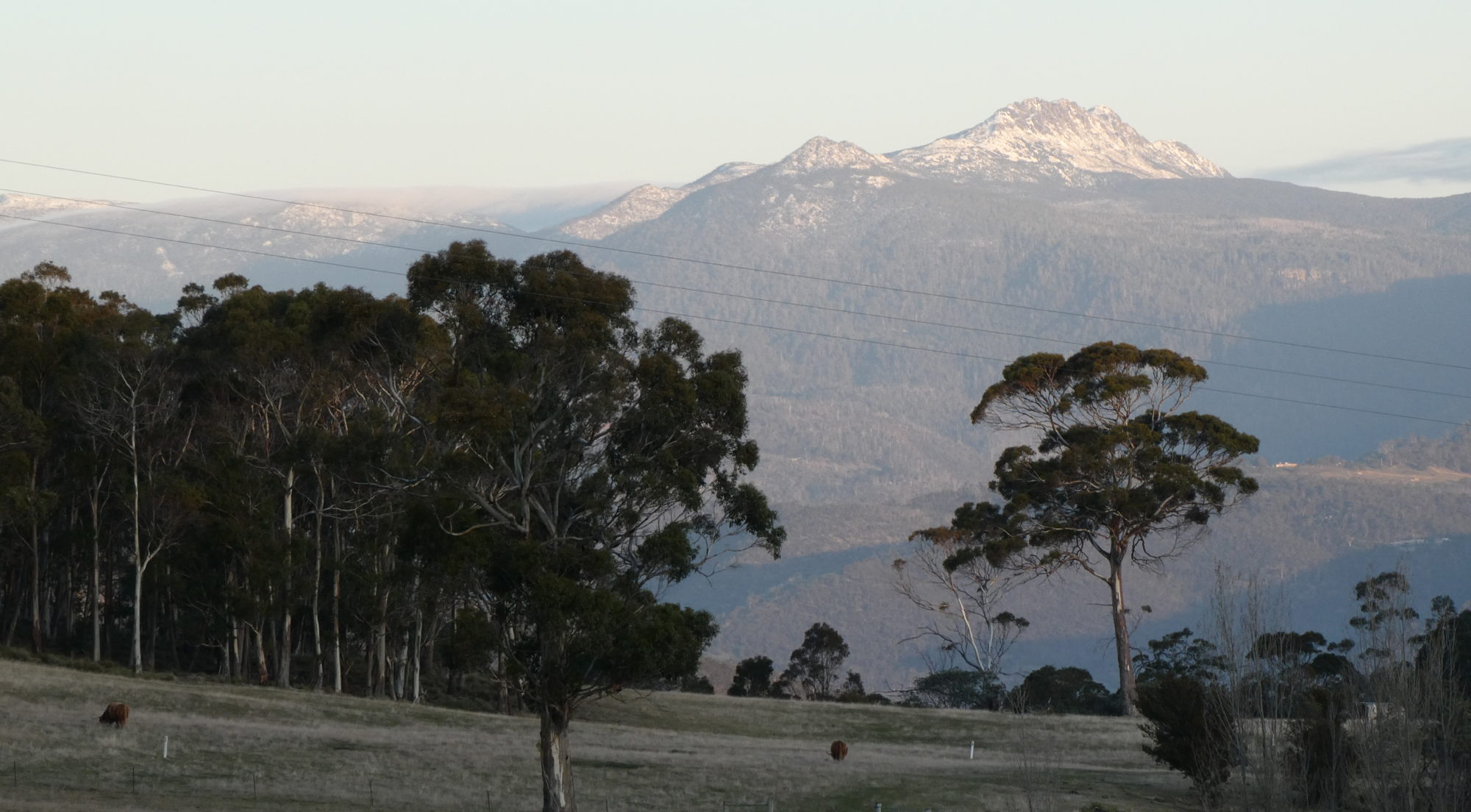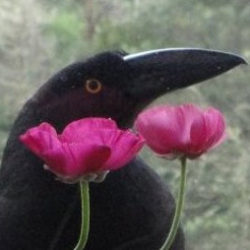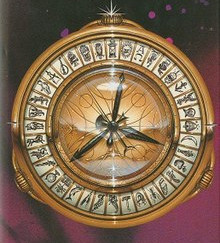The TV series, His Dark Materials, is currently running on Foxtel Showcase. It raises some interesting philosophical questions.
The author, Sir Phillip Pullman, was knighted in 2019 for his services to literature. In a 2004 poll he was voted the eleventh most influential person in British culture. He is best known for his His Dark Materials trilogy. often described as a “young adult fiction” or “fantasy” although Pullman himself sees it as “stark realism”. There is certainly a metaphysical quality in these books. The title itself coming from a passage in Milton’s Paradise Lost quoted as an epigraph in the first book, Northern Lights:
Into this wild abyss,
The womb of nature and perhaps her grave,
Of neither sea, nor shore, nor earth, nor fire,
But all these in their pregnant causes mixed
Confusedly, and which must ever fight,
Unless the almighty maker them ordain
His dark materials to create more worlds,
Into this wild abyss the wary fiend
Stood on the brink of hell and looked a while,
Pondering his voyage ….
The protagonists are creatures from a universe parallel to our own and closely resembling it but with subtle differences. The devious, manipulative and ruthless villains, are agents of a byzantine organisation known as The Magisterium, a thinly disguised version of the medieval Catholic Church. For them, any verbal acknowledgement of the self-evident parallel universe structure is heresy. A more complex issue is the nature of “dust”, a mysterious physical substance akin to dark matter and subatomic particles and which is identified as original sin. More food for heretics.
Pullman has been widely attacked for his negative views of Christianity (“worthy of the bonfire…”) although he acknowledges that his criticisms could be applied to all religions. He has found support from some Christians, notably Rowan Williams, the former Archbishop of Canterbury. Of his books he has said, “I’m not in the business of offending people. I find the books upholding certain values that I think are important, such as life is immensely valuable and this world is an extraordinary beautiful place. We should do what we can to increase the amount of wisdom in the world.”
Like Pullman, the English poet, William Blake (1757-1827) was an admirer of Milton. In The Marriage of Heaven and Hell, Blake refers to Paradise Lost (1667), but inverts the power relations between God and Satan. Jesus, the Messiah, becomes the voice of restraint, while Satan is the revolutionary voice of liberty and desire. Blake also includes a series of Proverbs of Hell with unsettling pearls of wisdom, including ‘The tygers of wrath are wiser than the horses of instruction’. The book ends with A Song of Liberty, which calls for revolt against the tyrannies of church and state. Blake noted that “The reason Milton wrote in fetters when he wrote of Angels & God, and at liberty when he wrote of Devils & Hell, is because he was a true Poet and of the Devil’s party without knowing it”. Pullman has referred to himself as “knowingly of the Devil’s party”.
Despite the bizarre nature of the worlds which Pullman creates it is all remarkably convincing. This is because the struggle he describes, between dogma and discovery, between heresy and invention, is so real and so recognisable. This is the core of Pullman’s “stark realism”. He is not describing any particular religion or ideology but the ubiquitous human tendency to coalesce into absolutist hierarchies which strive to suppress new insights into the nature of reality. No doubt his Magisterium was modelled on Medieval Christianity because that is familiar to people in Anglophone cultures. Had he written for Hindu readers, he may well have used a different model.
The Magisterium resembles some scientific disciplines as they are practised in the early 21st Century. Radical new insights are rarely welcomed by the editors of many environmental journals. Such editors perform a political function by vetting papers for heresy before they can be peer reviewed. In this context “heresy” refers to anything that might counter environmental alarmism and offend against prevailing dogma, so as to adversely affect research funding. An example was my own recent attempt to access peer review. I had developed a statistical method for testing numerical models against observations and was able to show that the carbon cycle, widely used in climate models for the last forty years, is demonstrably wrong. The journal editor rejected my paper on the grounds that “Extraordinary claims require extraordinary evidence”, a response worthy of the Magisterium.
He was quoting television science presenter, Carl Sagan!
Lord Asriel has my sympathy.



Globalist authority and its minions are on a big gaslighting expedition.
You have inspired me to read Pullman. Many thanks.
My biggest problem with the contemporary orthodoxies of the #EcoWarriors and the ascendant #GreenLeft is the shameless, pagan worship of Gaia, The Earth Goddess, totally ignoring the advances of the The Enlightenment- arguably the period of greatest advancement in positive human achievement.
I need to do some research, but I am convinced those who are the most ardent advocates of putting Mother Nature ahead of Humanity are almost certainly lacking STEM credentials or credibility. They make invocations to science ( eg. The Word according to the IPCC) , but are totally ignorant of the Scientific Method, and how knowledge is advanced.
My just-written comment, below, is related. Yes David, “the most ardent advocates of putting Mother Nature ahead of Humanity are almost certainly lacking STEM credentials or credibility” generally.
But they have nevertheless WON the war against the likes of you, me and John ‘The tygers of wrath [being]wiser than the horses of instruction’ as in Germany following the 1929 withdrawal of US investments, the unfair Treaty of Versailles and so on.
I saw how this was happening at the time, understand it now too late, in retrospect sadly. A top local CND person spoke to me when I was attending a Hiroshima film at that Art Deco theatre in Launceston, questioned my intention to study Science at TasUni, said I should do Political Science instead.
Great ending to a great article, one of your best. Not only well written. Trans-Disciplinary in a winning way, in the war started, and Won, by the people who invented “Trans-Disciplinary”, post-CND (Campaign for Nuclear Disarmament) humanists looking for “Whatever it takes” to end the nuclear arms race trhough the 1950s and 60s starting with Peace Studies in the 1970s, Environmental Studies in the 1980s, as I know from having been involved with all of these institutions . . .
This is what’s happening even to the Humanistic Disciplines, by now dominant ideologies :
“. . . Anyone in the academic humanities—anyone who’s gotten within smelling distance of the academic humanities these last 40 years—will see the problem. Loving books is not why people are supposed to become English professors, and it hasn’t been for a long time. Loving books is scoffed at (or would be, if anybody ever copped to it). The whole concept of literature—still more, of art—has been discredited. Novels, poems, stories, plays: these are “texts,” no different in kind from other texts. The purpose of studying them is not to appreciate or understand them; it is to “interrogate” them for their ideological investments (in patriarchy, in white supremacy, in Western imperialism and ethnocentrism), and then to unmask and debunk them, to drain them of their poisonous persuasive power. The passions that are meant to draw people to the profession of literary study, these last many years, are not aesthetic; they are political . . .” In : https://quillette.com/2022/08/17/why-i-left-academia-since-youre-wondering/
A good contemporary example of how mainstream culture invariably goes off the rails eventually, after years of Peace. NOT just in post-1929 Germany !?!
Hence also how greatest creativity often, perhaps most often, happens via such giving up of mainstream careers by talented people.
Matisse had been a lawyer, Derain an engineer. Our late top artist Geoff Dyer had been a school teacher.
Our top shelf Hill Street shops here in Hobart were started by a disillusioned lawyer and so on.
Plato’s three classes of men may be related : “There are three classes of men; lovers of wisdom, lovers of honor, and lovers of gain. The journey of a thousand miles begins with one step.”
I suggest that many people become disillusioned after engaging in professional careers as lovers of honour and gain.
They then become creative after changing over to valuing wisdom/Truth ahead of these other two values, often after some climactic event ending their careers.